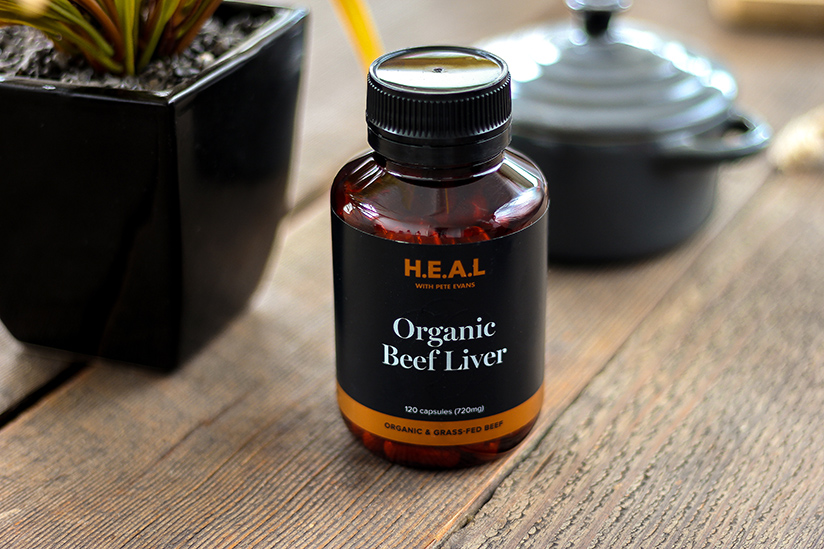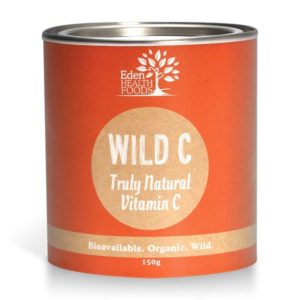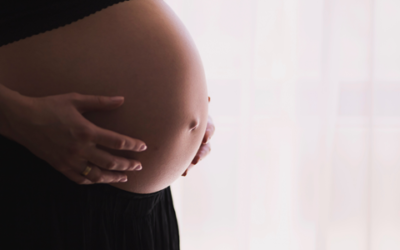Congratulations! You are pregnant and currently creating a new life.
Are you sure you are getting all the necessary nutritional building blocks to support the healthiest pregnancy and growing baby possible?
In an ideal world, we should begin preparing our body nutritionally a solid six months in advance to considering making a baby. Obviously, not everyone has this opportunity but despite circumstances, it’s never too late to start laying down strong nutritional foundations to really optimise yours and bubs health during pregnancy.
Having plentiful supplies of core nutrients such as Iodine, Folate (NOT Folic Acid which your GP will likely be very keen for you to supplement with), Choline, Glycine, Vitamin D and Vitamin A will ensure that a growing baby has everything it needs to thrive through the first trimester and beyond whilst also protecting yourself against Post Partum Depression due to chronically depleted nutrient stores.
Now there is no specific pregnancy diet folks, what it comes down to is just eating real, nutrient-dense food and steering well clear of anything processed and prepared with chemicals. This is why organic food is best if you are preparing for a baby.
Reducing toxic load is absolutely critical because when one falls pregnant, any accumulated toxins, including heavy metals are passed over the placenta and dumped on the growing fetus. Recent studies conducted have shown that as a baby crosses over earth side, it already has over 200 different chemicals, toxicants and known carcinogens present in their cord blood. That is one frightening statistic.
Our babies are born with a body burden that they never asked for nor had any say in. It is our duty and responsibility to make sure that we clean house for a good six months before considering conception to reduce this body burden as much as possible.
Pollutants and pesticides cross the placenta as readily as residues from cigarettes and alcohol do and it is for this reason that choosing organic produce, grass-fed meats and wild-caught fish is of paramount importance during preconception, pregnancy and whilst breastfeeding.
The daily intake requirements of certain vitamins and minerals increase a lot, no doubt about it but this does not necessarily mean more food needs to be consumed. If we are consuming nutrient-dense food, quantity doesn’t enter the equation if your nutritional needs are being met.
Pregnant women need to be aiming for the following –
Folate not Folic Acid: Aim for 800 mcg per day
Folic Acid is the synthetic version of the whole food form of Folate. Folic Acid does not have the capacity to cross over the placenta however despite this, it still affords protection against neural tube defects.
While the body is able to convert some synthetic folic acid to folate, it has a limited capacity to do so. Much of the remaining synthetic folic acid that is not converted, circulates in the blood and tissues unmodified. It is unknown exactly what unmodified folic acid does in the human body, but it has the potential to disrupt normal folate metabolism and there is substantial evidence that it can even promote cancer growth.
In addition, synthetic folic acid can disrupt the actions of natural folate as it has a greater capacity to bind to folate receptors on our cells. This, in turn, could result in folic acid being preferentially transported into normal healthy cells instead of natural folate. Once inside the cell, folic acid could then compete with natural folates for other binding sites, preventing them from functioning properly and potentially causing changes in normal gene expression or cell growth rates.
Natural folate is abundant in green vegetables, citrus peel, beans, legumes and other whole plant foods however it is in organ meats that it is most abundant and readily absorbable by the body. 100 grams of beef liver contains over 65% of the daily needs for a pregnant woman. Not everyone is down with the idea of eating offal so we recommend using a fantastic wholefood, organic beef liver supplement instead.

Iodine: 300mcg per day
Blood Serum Vitamin D Levels should be above 100ng/ml which equates to at least 3000IU of Vitamin D daily coming from sunshine on the naked skin, egg yolks and cod liver oil.
Choline: 450mcg from pastured, organic eggs, organ meats and non GMO Sunflower Lecithin.
Vitamin C: Up to bowel tolerance threshold which will vary from person to person. Wholefood C Complex only please! No synthetic Ascorbic Acid.
Vitamin A in the form of Retinyl: Above 10,000mcg taken together with fat-soluble vitamins D3 and K2, this is really important as high levels of wholefood Vitamin A without those two co-factors can lead to toxicity. Retinyl Vitamin A is only found in animal products such as liver. Please avoid the synthetic version of Vitamin A which is Retinal Palmitate. You will often see Palmitate or Beta carotene (plant-based) as the primary forms of Vitamin A. Beta carotene is poorly converted to Retinyl Vitamin A which is what our bodies seek however Beta carotene does offer powerful antioxidant benefits. It’s best used in conjunction with Retinyl. We highly recommend supplementing with Fermented Cod Liver Oil or Beef Liver supplements or both to ensure you meet your daily requirements.
Mothers who are vegan or vegetarian need to be especially mindful of how they supplement during pregnancy and beyond. Choline in food form is only found in animal products such as eggs and liver. Supplementing with Sunflower Lecithin (not soy) is a fantastic source of food-based choline. We like the Seeking Health Optimal PC.
Iodine is such an underrated mineral and sadly, more than 50% of all pregnant women are woefully deficient. Iodine deficiency during pregnancy has significant implications on bubs cognitive development and thyroid development. Seaweed is your best source of wholefood iodine. We really like the HEAL Seaweed Superblend supplement which provides your 300mcg of iodine in one capsule OR Nascent Iodine which provides 400mcg per drop and is highly bio available.
Vitamin D should come from the sun first and foremost. Whenever you have the opportunity to, shed the clothes and get some sun on naked skin. During the Winter months, this can be tricky so be sure to supplement with Cod Liver Oil or a good Vitamin D3 supplement to shore up supplies till the sun comes round again. Ensuring you have optimal levels of Vitamin D whilst pregnant will help safeguard you against postnatal depression in the fourth trimester.
We can get about 1 gram of Vitamin C through the food we eat each day, getting more than that though is a stretch without supplementation. Think superfood smoothies packed with the likes of Acerola Berry, Camu Camu or Kakadu Plum as fantastic wholefood sources of Vitamin C and can be found in the HEAL Vitamin C supplement OR the Wild C loose powder which we offer. Adding Red and Yellow foods such as Capsicum and Tomatoes to your salads is fantastic and eat your fill of berries!

When it comes to Glycine, the richest sources are found predominantly in animal products such as our beautiful bone broth’s, poultry and slow-cooked grass-fed meats. It is found in small amounts in legumes and dark leafy greens however you would have to consume a very large amount to reach your daily needs.
As you can see, there is a lot to take in and be mindful of. During preconception and pregnancy, we really do need to be conscious consumers and focus on reducing toxicity AND optimising nutritional density from the foods we eat.
Here is what we do amazingly well for anyone out there preparing their body for a baby or pregnant –
1. We provide the highest quality, organic ingredients to eliminate as much toxic burden on your body as possible.
2. We provide nutrient-dense, whole foods made with consideration for their impact on the body. We aim to pack as much nutrition in our meals as possible and avoid the use of fillers.
3. We provide organic beef bone broth, chicken bone broth and vegan broths that are rich in glycine, iron, silica and all the necessary protein building blocks for a healthy mum and bub. We recommend consuming a cup a day.
4. Our meals are plant matter rich. We aim to include as many veggies as possible in the meals we create for you to ensure your microbiome is well fed with fibre and your digestive tract is kept regular.
5. Our meals have and always will be 100% preservative-free. There are no artificial colours, flavours or flavour enhancers used. Everything in our kitchen is made from scratch.
6. We have a proven track record and amazing feedback from the so many new mumma’s we’ve had the privilege of feeding the past seven years. Our results and testimonials speak for themself. We are a meal delivery company that loves nourishing pregnant women through their journey.
We hope this blog has been really helpful for anyone out there planning out their motherhood journey. It’s a big adjustment for the body.
Just know that what you eat during preconception and throughout pregnancy makes a huge difference to your wellbeing in the fourth trimester. When we go into this process consciously and mindful of getting the right nutrients in the right amounts, you can avoid postpartum depression and thrive.
Some of our Favourite Resources that we Recommend Are:
The Nourishing Traditions Book of Baby and Child Care




0 Comments